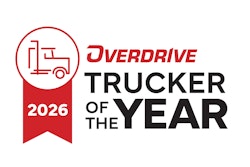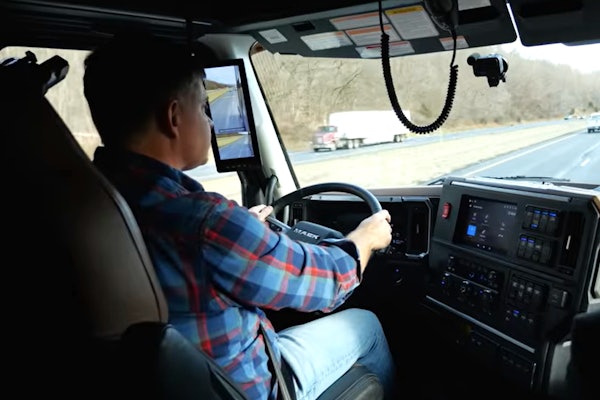Just before President Donald Trump left office in January 2021, his Department of Labor published a final rule clarifying the definition of independent contractor as it relates to the Fair Labor Standards Act.
Trump’s rule, in effect since March 2022, established a test featuring five economic-reality factors to make the determination of whether rules governing employees should apply to a company and a worker, or whether the independent contractor relationship is appropriate. Two of those factors -- the nature and degree of the worker’s control over the work and the worker’s opportunity for profit or loss -- are primary under the rule, carrying greater weight than the other three factors:
- The amount of skill required for the work;
- Degree of permanence of the working relationship between the worker and the potential employer; and
- Whether the work is part of an integrated unit of production.
The Biden Administration put the rule on hold shortly before it was set to take effect in March 2021 before issuing a withdrawal in May 2021. The Trump-era rule was reinstated in March 2022, however, by determination of a federal district court.
In October, the Biden DOL offered a Notice of Proposed Rulemaking to reverse the Trump-era rule and return to the department's prior analysis for determining classification. The proposal does away with the primary-two-factors approach and renders a “totality of the circumstances” analysis based on these factors:
- The opportunity for profit or loss, depending on managerial skill
- The investments by the worker and the employer
- The degree of permanence of the work relationship
- The nature and degree of employer control
- The extent to which the work performed is an integral part of the employer’s business
- The worker’s use of skill and initiative

[Related: House bill looks to give independent contractors more flexibility]
While it's no ABC test like that specified by California's AB 5 law -- nearly impossible to pass for an owner-operator under a traditional lease arrangement with a motor carrier, the Biden DOL's proposal garnered more than 55,000 comments filed during a 60-day period that closed this week. A sizable number of those came from trucking industry voices expressing concern.
The Owner-Operator Independent Drivers Association said that like “nearly all other classification proposals in recent years, it is difficult to determine the full implications” of the proposal and what it would mean for truck drivers and owner-operators, yet “we support the Department’s stated approach that seeks to examine all aspects of a working relationship and makes clear that no one factor is dispositive. We also support the Department’s stated intent to follow decades-long practices for classification under the FLSA,” which has allowed owner-operators to work as independent contractors.
The group noted, however, that its success or failure hinges on its specifics and how it’s implemented.
In general, OOIDA added, DOL “should make clear that workers are unlikely to be reclassified as a result of this rule, especially for industries and business models that are well-established. If it is the Department’s intent that this rule should uphold practices that were in place for years before the 2021 Independent Contractor Rule, then we believe any final rule should confidently state that most workers would not see a change.”
The NexGen Logistics company was more direct in its opposition to the proposal and support for the 2021 rule change. “The 2021 FLSA rule change was a long-overdue, necessary step in order to clarify and protect the owner-operator trucking model, and should remain in effect,” the company said. NexGen added that confusion over the previous classification rules “presented a burdensome obstacle, threatening the supply chain workforce, which is why the 2021 rule was implemented. The currently proposed rule change will increase the level of confusion and adversely affect independent contractors nationwide -- the opposite of the DOL's stated intent.”
Timothy Gillmore, who said in his comments that he has a “business focused on the 3PL industry,” also supported the 2021 contractor rule, saying it “provided industry stakeholders and businesses like ours with more clarity and certainty in the appropriate classification of a worker.”
The American Trucking Associations filed concern that the current proposal “would harm our industry, the independent entrepreneurial men and women who work with our members as owner-operators, our nation’s supply chain and most importantly the general public,” adding that “the proposal will only benefit trial lawyers litigating this issue in court by blurring the lines on status so severely that virtually every case has to go to trial.”
[Related: Department of Labor wants to end Trump-era independent contractor rule]
None other than United States Small Business Administration's Office of Advocacy worried additional burdens like these, compared to the current classification regime, could significantly impact industries like construction and trucking, which rely heavily on independent contractor relationships.
"This rule may add costs, liability, and disruption for small business operations in these industries," SBA said. "These businesses may be unable to make significant changes to their business model" without added costs. In trucking, SBA believed driver availability issues might be exacerbated, for instance, leading "to more supply chain issues. DOL should estimate these compliance costs in their IRFA," a reference the DOL's Initial Regulatory Flexibility Analysis.
SBA believed that required compliance-cost analysis had significantly underestimated "the compliance cost of this rule for small businesses," recommending DOL "clarify certain factors in this proposed test and resolve any conflicts with existing federal requirements. Advocacy also urges DOL to reassess the compliance costs from this rule in a Supplemental Initial Regulatory Flexibility Analysis. As part of that supplemental analysis, DOL should consider significant alternatives that would accomplish the objectives of the statute while minimizing the economic impacts to small entities," as required by law.
The ATA added that if DOL moves forward with the rule as proposed, the association hoped for specific guidance in the regs' text to hone in on just when "contract provisions will create an employer/employee relationship under the Fair Labor Standards Act. Failure to provide that guidance will create havoc in our industry and result in less safe roads for the American people.”
Commenter Mike Lawson concurred with ATA to an extent, in distinguishing between "gig economy" workers and owner-operators in the trucking. IC classification is needed not only for Uber and Lyft drivers and the like but countless other worker categories he noted: “truckers (owner-operators), freelancers, musicians, parents with a part-time job that’s run out of their home, and countless others.”
Lawson believed that truck drivers “would be forced to become employees of a trucking company where they would lose the flexibility to choose their routes, set their schedule, and work as much or as little as they want. Moreover, they would have to give up their ability to reap the full financial rewards of their investment and efforts in exchange for fixed wages.”
[Related: Is the owner-operator model a legal minefield? Attorney weighs in]
George Martin Sr. also noted differences between “gig workers” and truck drivers. “Separate us [truck drivers] when you go into discussions about this rule." Martin favored a specific treatment of employee/independent contractor status in trucking that would recognize the differences between what he saw as four categories of individual worker when it comes to truck operation, with increasing degrees of independence from company driver (definitively an employee) to what he termed lease-operator, owner-operator and fully independent contractor.
Martin believed an ideal ruling would be one that gives people the necessary protection without taking away their choice in how they want to work.
Commenter James Vaughn said he believes lease operators should be considered employees, “unless the lease operator has control over their business. ... Decisions such as where to get fuel, where to get their load from, etc., should be up to the lease operator, not the company they lease from. Otherwise, you're renting your job,” he added.
Ultimately, Vaughn said, “if we are making the truck payment and purchasing the fuel and paying for insurance, then we should decide what we do with that truck.”
[Related: Owner-operator business challenges mount for the new year]










